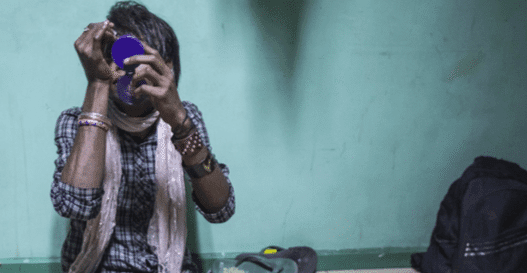In Papua New Guinea, it is illegal to live off the earnings of sex work and to organize commercial sex. Homosexuality is also criminalized and is the primary basis for prosecuting male sex workers.
Amnesty International’s research found these criminal laws allow the police to threaten, extort and arbitrarily detain sex workers.
Sex workers in Papua New Guinea suffer extreme levels of stigma, discrimination and violence, including rape and murder. A survey conducted by academic researchers in 2010 found that, within a six-month period, 50 percent of sex workers in Papua New Guinea’s capital Port Moresby had been raped by clients or by the police.
Mona, a sex worker who is homeless, recounted to Amnesty International: “The police started to beat my friend [a client] and me… Six police officers did sex to me one by one. They were armed with guns, so I had to do it. I don’t have any support to come to court and report them. It was so painful to me, but then I let it go. If I go to the law, they cannot help me as sex work is against the law in PNG.”
The police in Papua New Guinea have used condoms as evidence against sex workers, who are often stigmatized and accused of being “spreaders” of disease. This discourages many sex workers from obtaining sexual and reproductive health information and services including on HIV and AIDS.
Mary, a female sex worker, explained: “When the police catch us or hold us, if they find condoms on us they bash us up and say we are promoting sex or you are the ones spreading this sickness like HIV. The police ask for money, they threaten us or say give us this amount. We give it to them as we are scared if we don’t give it to them they might bash us up.”

